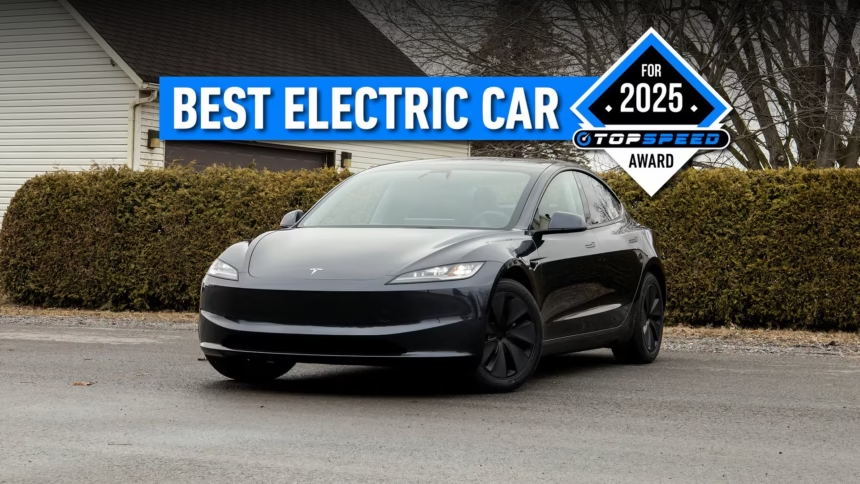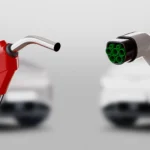Executive Outlook: The Financial and Practical Tipping Point
The question of whether an Electric Vehicle (EV) is a worthwhile purchase in 2025 is no longer a simple ‘yes’ or ‘no.’ It is a nuanced calculation that depends less on the technology’s capability and more on the individual driver’s lifestyle and access to charging infrastructure.
In 2025, the EV is the clear winner on:
- Total Cost of Ownership (TCO): Long-term savings on fuel and maintenance often outweigh the higher initial sticker price, especially for high-mileage drivers.
- Range and Technology: Average range now easily exceeds 300 miles, and battery degradation is minimal, often covered by 8-to-10-year warranties.
However, the decision is complicated by:
- Upfront Cost: EVs still command a premium over comparable gasoline cars, although federal and state incentives can significantly narrow this gap.
- Charging Access: Lack of reliable home charging (e.g., for apartment dwellers) or frequent long-distance travel through rural areas remains a significant practical hurdle.
Conclusion: For the vast majority of urban and suburban drivers with access to home charging, an EV is now a superior, high-value, and financially sound choice. For others, the transitional solution of a Plug-in Hybrid (PHEV) or standard gasoline car may still be more practical. The time of true EV viability for the mainstream has arrived.
The Financial Equation: Total Cost of Ownership (TCO) in 2025
The single most important factor shifting the EV decision is the Total Cost of Ownership (TCO). While the sticker price remains higher for EVs, the long-term running costs close and often surpass the savings provided by cheaper gasoline cars.
The Initial Investment: Higher But Shrinking
The sticker price gap is narrowing:
- Upfront Cost: On average in 2025, a new EV still costs approximately $5,800 to $6,000 more than a comparable gasoline vehicle.
- Incentives Matter: This gap is often erased or significantly reduced by incentives. Federal tax credits (up to $7,500) and various state/utility rebates (ranging from $2,000 to $5,000 in some regions) can make the effective purchase price of an EV competitive with, or even lower than, a gas car.
- The Breakeven Point: Recent analyses show that when all costs are factored, the lifetime cost of owning an EV can be $7,000 to $12,000 less than a gasoline car over a 7-to-15-year period, with the breakeven point often reached in under five years, particularly for high-mileage drivers (15,000+ miles/year).
Operating Costs: Where EVs Dominate
| Cost Factor | Electric Vehicle (EV) | Gasoline Car (ICE) | Advantage |
| Annual Fuel/Charging | $500 – $800 (Home charging) | $2,000 – $2,220 (Based on 15,000 mi/yr, $3.70/gal) | EV (Savings of ~$1,500/year) |
| Annual Maintenance | $950 average (30-50% lower) | $1,279 average (Higher moving parts) | EV (No oil changes, less brake wear) |
| Home Charger Installation | $500 – $2,000 (One-time cost, often subsidized) | $0 | ICE (Lower initial setup) |
| Taxes/Fees | Often exempt from city congestion/emission charges | Subject to ULEZ/Congestion fees in many cities | EV |
The enormous advantage of running an EV on electricity—which can be up to 80% cheaper per mile than gasoline, especially with off-peak home charging rates (as low as $0.12/kWh)—is the main driver of long-term savings. For every 100 miles, an EV costs roughly $6–$18 in electricity, compared to over $15 in gasoline for a comparable ICE car.
Technology and Practicality: The Range and Battery Reality
The greatest historical barrier to EV ownership—range anxiety and battery life—is largely a relic of the past due to accelerated technological advancements in 2025.
Pros: Superior Performance and Durability
- Exceptional Range: The average range for new EVs is now around 300 miles, with many mid-range models easily exceeding this. Premium and long-range models (like the Lucid Air and NIO ET7) offer ranges surpassing 450 miles and even breaking the 600-mile barrier on a single charge. This effectively rivals the range of many gasoline cars.
- Minimal Battery Degradation: Real-world data shows that modern EV batteries are highly durable. Most retain 90-96% of their original capacity after three years, and studies suggest they maintain 70-80% of capacity well past 150,000 to 200,000 miles.
- Robust Warranties: To guarantee consumer confidence, virtually all manufacturers offer battery warranties of 8 years or 100,000 to 150,000 miles, typically guaranteeing at least 70% of original capacity retention. This minimizes the risk of expensive out-of-pocket battery replacement.
- Driving Experience: EVs offer a quieter, smoother, and more responsive driving experience. Instant torque provides powerful, linear acceleration, and a low center of gravity improves handling and stability.
Cons: Charging Time and Infrastructure Gaps
- Charging Time: While charging at home overnight is highly convenient, public DC fast charging remains slower than a gasoline fill-up. Even the fastest stations take 20-40 minutes to replenish the battery from 10% to 80% capacity. This inconvenience is most noticeable during long-distance road trips.
- Infrastructure Gaps: Although the public charging network is expanding rapidly (especially in urban corridors), charging stations can still be scarce or unreliable in rural areas, national parks, and specific interstate routes. This can complicate travel for those who frequently drive in remote locations.
- The Home Charging Divide: For renters, apartment dwellers, or those without dedicated parking/driveway access, installing a home charger (the cheapest and most convenient charging method) can be impossible, forcing reliance on more expensive public charging.
The Elephant in the Room: Depreciation and Resale Value
Historically, EVs suffered from higher-than-average depreciation, mainly because rapid technological improvements quickly made older models obsolete. In 2025, this picture is becoming more complex and model-dependent.
- The Luxury EV Problem: Some older luxury EVs (like the Jaguar I-Pace) and early mass-market models have indeed seen faster depreciation (losing over 65% of value over five years).
- The New Market Reality: High-demand models, particularly from Tesla (Model 3/Model Y) and certain premium brands like Porsche (Taycan), are showing increasingly strong residual values, comparable to or even better than their gasoline counterparts. For example, the Porsche Taycan has been shown to retain close to 77% of its value after three years in some markets.
- Future-Proofing: Leasing an EV is an increasingly popular option, as it hedges against the risk of technological obsolescence and unexpected depreciation, allowing drivers to upgrade to newer, longer-range models every few years.
Final Verdict: The Ideal EV Buyer in 2025
You Should Buy an EV If:
- You can charge at home: This is the biggest factor for maximizing convenience and minimizing running costs.
- You drive high mileage: Saving $1,500+ annually on fuel will quickly offset the higher purchase price.
- You live in a region with high gas prices and/or low electricity costs.
- You qualify for federal or state EV incentives.
- You plan to keep the car for five years or more to fully realize the TCO savings.
You Should Wait or Consider a Hybrid If:
- You cannot charge reliably at home or work.
- You drive less than 10,000 miles per year (the TCO savings will take longer to materialize).
- You frequently take spontaneous, very long road trips through areas with poor charging infrastructure.
- You are a budget-conscious buyer focused solely on the lowest possible upfront sticker price.
The Truth: The market has moved past the question of if EVs are viable. They are technologically advanced, financially prudent over the long term, and now offer competitive range. For the right driver profile, the EV is overwhelmingly worth it in 2025.
Source Reference and Further Reading:
- Motorwatt: EV vs Gas Car Cost: Complete 2025 Ownership Comparison Guide (Accessed November 19, 2025).
- Recurrent/ArenaEV: New study confirms your EV’s battery is not a ticking time bomb (Accessed November 19, 2025).
- Pod Point: Top 10 Electric Cars with the Longest Range in 2025 (Accessed November 19, 2025).
- Motorway: Electric Car Depreciation – The Ultimate Guide (2025 Update) (Accessed November 19, 2025).





